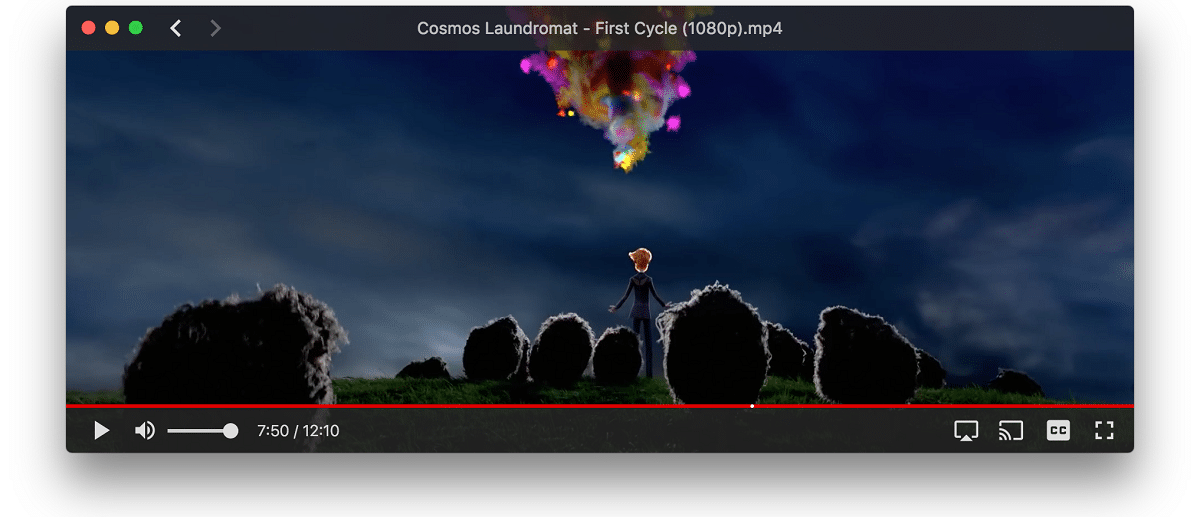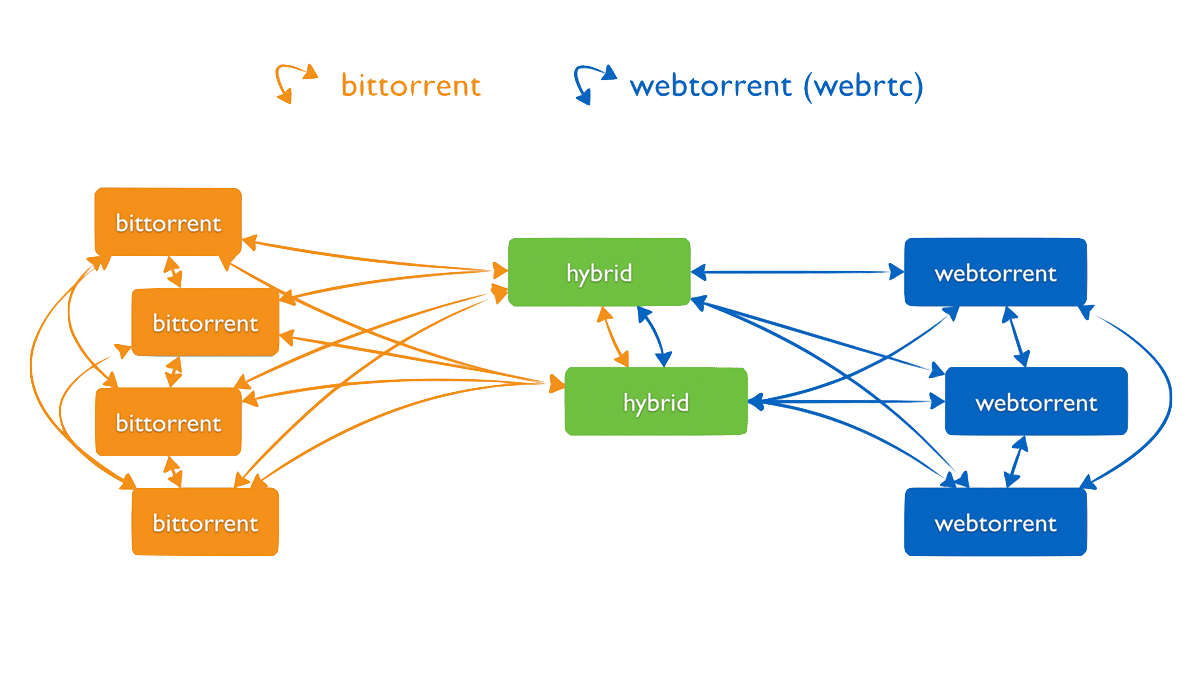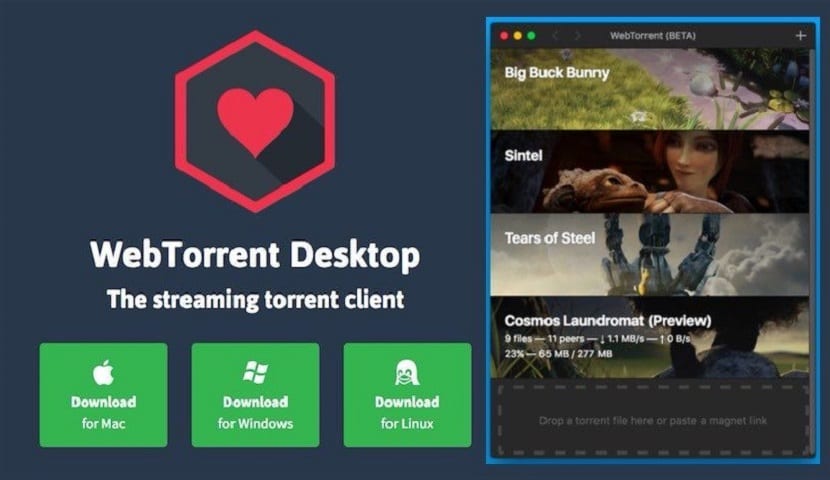
Feross Aboukhadijeh (who wrote the WebTorrent code) made it known recently which added support for the WebTorrent protocol to the libtorrent library (which offers an efficient implementation of the BitTorrent protocol in terms of memory consumption and CPU load).
For those unfamiliar with WebTorrent, they should know that this is a torrent client P2P streaming written in JavaScript by Feross Aboukhadijeh (who also created YouTube Instant) and the WebTorrent team for use in web browsers, as well as a standalone version WebTorrent desktop capable of connecting serverless WebTorrent and BitTorrent networks.
About webtorrent
Online video is the main focus, as this is where WebTorrent is most useful. It is less suitable for smaller files or data sets, but is ideal for larger files.
File availability, as with BitTorrents, depends on torrent seeding. If few users share a file, an HTTP server that provides web seeding would be the alternative.
It cannot be shared without webseeding. However, this could have some positive implications. Instead of using a broker upload site to share a large private file with someone else, with WebTorrent you can connect directly without leaving a trace somewhere or potentially archived somewhere on upload.
WebTorrent is an extension of the BotTorrent protocol what pallows you to organize a decentralized network of content distribution that operates through the interconnection of the browsers of the users who see the content.
The project no external server infrastructure required and browser add-ons to function. To link site visitors to a single content delivery network, it is sufficient to place special JavaScript code on the site that uses WebRTC technology for direct data exchange between browsers.
The project also develops the WebTorrent Desktop client, which has such advanced features as video streaming.
libtorrent already has WebTorrent

The integration from WebTorrent in libtorrent you allow you to participate in the distribution of content not only through website visitors' browsers, but also via stationary torrent clients using the libtorrent library, including Deluge and qBittorrent (rTorrent does not affect the change as it uses a different libtorrent library).
The WebTorrent implementation added to libtorrent is written in C ++ and can be ported to other torrent libraries and clients if desired (the original WebTorrent is written in JavaScript).
Therefore, it they can form hybrid networks with participants capable of interacting with networks based on BitTorrent and WebTorrent.
Libtorrent-based torrent clients will be able to connect to WebTorrent peers running in browsers, for example by participating in file sharing via instant.io, as well as video streaming or video hosting systems. based on PeerTube.
Webtorrent freetorrent support opens the door for many more torrent clients to connect to browser peers. Browser peers (who must use WebRTC) will now be able to access a large number of torrents that are currently only available for TCP / UDP peers.
The WebTorrent protocol allows peers to connect via WebRTC in addition to the widely supported TCP and UDP transports. In fact, UDP support was added to the BitTorrent protocol in a protocol extension (see μTP protocol) and now UDP is the main transport used by BitTorrent clients.
At the same time, WebTorrent browser clients will be able to, through stationary client users, access the extensive collection of distributed torrents by its BitTorrent peers over TCP / UDP.
The code to work with WebTorrent will be included in the next significant version of libtorrent, formed after branch 2.0, which is in the stage of a candidate for releases.
Finally, if you want to know more about it, you can consult the original publication In the following link.
